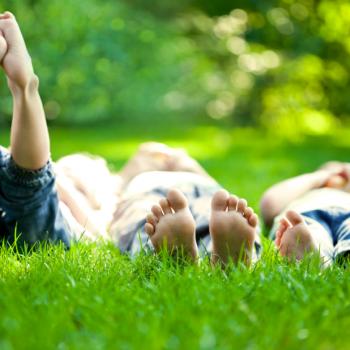Acts 28:2 tells us that when Paul and his shipmates wrecked onto the shores of Malta, “The native people showed [them] unusual kindness.” That is what will happen for you as well. You will be met with unusual kindness when you find a new network of support. They may seem to speak a different language (Who can keep all these acronyms and medical diagnosis straight when you’re hearing them for the first time?), but as you adjust to a new normal with your family, they will be there to support you. People who start out as strangers will become like family, all because of what you have in common and what God is doing through you. And with them, you will fulfill the purpose God had for you all along! – from Unexpected Blessings: The Joys and Possibilities of Life in a Special-Needs Family (affiliate link)
To remember you aren’t alone on this special-needs parenting journey, you need to get support from others who can empathize.
Friends who are most likely to show up when we are struggling are those who have lived through similar circumstances. “After undergoing a hardship, people have new knowledge to offer those who go through similar experiences. It is a unique source of meaning because it does not just give our lives purpose—it gives our suffering purpose.” (Tish Harrison Warren Liturgy of the Ordinary)

I’m reminded of 2 Corinthians 1:3-5:
Blessed be the God and Father of our Lord Jesus Christ, the Father of mercies and God of all comfort, who comforts us in all our affliction, so that we may be able to comfort those who are in any affliction, with the comfort with which we ourselves are comforted by God. For as we share abundantly in Christ’s sufferings, so through Christ we share abundantly in comfort too.
I saw it in my parents’ lives. When I was growing up, my parents had a tight group of friends, bound by the fact they all had children with special needs. They baby-sat for one another, they fought for the rights of their children together, and above all they encouraged one another. When I got James’s diagnosis, one of the first people I called was a friend of my mom’s whose son also had autism.
Because our parents were so close, we siblings of kids with disabilities grew up together as well. And now as we inch closer to being the caretakers and decision makers for our brothers and sisters, we can still rely on each other for support and empathy.
So where do we find these new friendships?
- Pray for them. God sees your needs and He cares for you. Tell Him what you feel like you lack and ask Him to provide. You may be surprised by the ways He will answer your prayers!
- Connect in person through church and support groups. It may take visiting more than one, but support groups can be extremely helpful. You may connect with the other parents of kids in your child’s class or at Special Olympics. You may find new friends at church when you pick up your daughter from Sunday school. Be on the lookout for parents you can connect with and reach out.
- Connect online. Most special-needs parents would probably say they have found more friends and support online than in their communities. Although those friends can’t stop by with dinner on a hard day or offer to babysit for you, they can be there when you need to vent or ask a question about an issue with your child.
If you’re looking for a support system on this journey, I’d like to invite you to join me in January as a group of us will be reading Unexpected Blessings: The Joys and Possibilities of Life in a Special-Needs Family. You can grab a copy from your favorite book retailer and join us starting Jan. 7th. Sign up by clicking here or on the image below.












